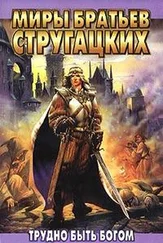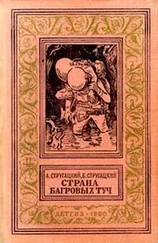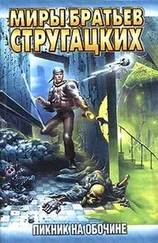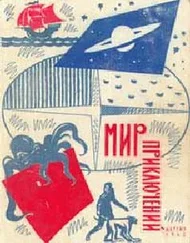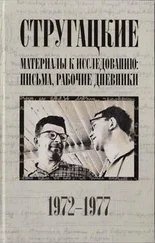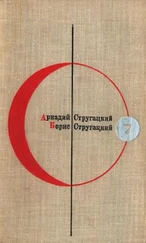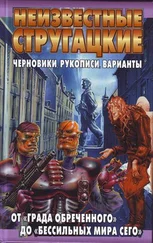Аркадий Стругацкий - Six Matches
Здесь есть возможность читать онлайн «Аркадий Стругацкий - Six Matches» весь текст электронной книги совершенно бесплатно (целиком полную версию без сокращений). В некоторых случаях можно слушать аудио, скачать через торрент в формате fb2 и присутствует краткое содержание. Жанр: Фантастика и фэнтези, на английском языке. Описание произведения, (предисловие) а так же отзывы посетителей доступны на портале библиотеки ЛибКат.
- Название:Six Matches
- Автор:
- Жанр:
- Год:неизвестен
- ISBN:нет данных
- Рейтинг книги:4 / 5. Голосов: 1
-
Избранное:Добавить в избранное
- Отзывы:
-
Ваша оценка:
- 80
- 1
- 2
- 3
- 4
- 5
Six Matches: краткое содержание, описание и аннотация
Предлагаем к чтению аннотацию, описание, краткое содержание или предисловие (зависит от того, что написал сам автор книги «Six Matches»). Если вы не нашли необходимую информацию о книге — напишите в комментариях, мы постараемся отыскать её.
Six Matches — читать онлайн бесплатно полную книгу (весь текст) целиком
Ниже представлен текст книги, разбитый по страницам. Система сохранения места последней прочитанной страницы, позволяет с удобством читать онлайн бесплатно книгу «Six Matches», без необходимости каждый раз заново искать на чём Вы остановились. Поставьте закладку, и сможете в любой момент перейти на страницу, на которой закончили чтение.
Интервал:
Закладка:
One day Gorchinsky ran into Komlin's office in great excitement. "Come to the monkey house at once!" he cried. In one of the cages sat a young ape chewing on a banana. There was nothing unusual about the ape or the banana, but both the watchman and Gorchinsky declared they had just witnessed something extremely odd. A few moments before, the ape had been intently watching a slip of paper that had been moving slowly toward it. As the animal reached out its paw to snatch the paper, Gorchinsky had rushed off to fetch Komlin. By the time they returned the paper was gone; the watchman insisted that the monkey had eaten it. At any rate there was no sign of it in the cage. An attempt to reproduce this strange phenomenon had failed.
"Here is what Komlin wrote on that score," said the Director handing the Inspector a piece of graph paper.
"Mass hallucination?" the Inspector read. "Or something quite new? Mass hallucination with the participation of an ape is remarkable in itself. There must be something else here. It is useless to try to find out anything with these animals-monkeys or dogs. I must try it on myself."
This Komlin proceeded to do. Gorchinsky soon found out and lost no time in following suit. They even quarrelled as a result, and in the end Gorchinsky promised not to experiment any more, while Komlin gave his word to try only the simplest, briefest and safest exposures. Gorchinsky did not even know that Komlin had stopped working on neutrino acupuncture.
"Unfortunately," the Director went on, "Komlin's records contain very little information about the truly astounding results of his experiments. His notes become increasingly fragmentary and illegible; one feels he was often at a loss for words to describe his sensations and impressions, and his conclusions are incoherent and diffuse."
The Director had found a few pages torn out of the notebook in which Komlin had described the extraordinary effect on his memory he had noticed after one of his experiments. "It is enough for me to glance at an object once for every detail of it to be stamped with amazing clarity on my memory. I have only to glance at the page of a book to be able to recite it from memory. I have memorized several chapters from River Backwaters and the entire table of logarithms from the first to the last figure, and I believe I shall remember them to my dying day. What tremendous possibilities!"
"Memory, as well as many reflexes and habits," he wrote elsewhere in a firm hand, "have a definite material basis that is still unclear to us. This is elementary. The neutrino beam penetrates to this basis and creates new memory, new reflexes, new habits. Or merely causes their appearance indirectly. That is what happened to Genny, Cora and to me (mnemogenesis-the creation of false memory)."
The most interesting and astounding of all Komlin's discoveries were described in the last few pages of notes clipped on to the back of the book.
"Here is the answer to your questions," said the Director, waving these pages at the Inspector.
"This is a sort of synopsis or an outline for a report. Shall I read it?" "Yes, please."
"We cannot even blink by merely willing it. The agency of a muscle is required. The nervous system only plays the part of the carrier of the impulse. This is an infinitesi-mally small charge, but it is enough to make the muscle contract and shift dozens of kilograms, in other words, perform a colossal amount of work in comparison with the energy of the nervous impulse. The nervous system might be called the detonator in an explosive charge, the muscle the explosive, and the muscular contraction the explosion. " Tt is common knowledge that an intensification of the thinking process intensifies the electromagnetic fields arising somewhere in the brain cells. Hence biocurrents. The very fact that we can detect them shows that the process of thinking acts on matter-true, not directly, but through the electromagnetic field of the brain. The greater the intensity of the field, the greater the declination of the needle of the device measuring it. Is this not a psychomotor? The electromagnetic field is the brain's muscle.
"One develops, for instance, an ability to calculate at lightning speed. I have done it, but how, I cannot say.
I just do it. 1,919X237=454,803.1 got this result in four seconds by the stopwatch. This is all very good, but not the real thing yet. The electromagnetic field is greatly intensified, but what about other fields, if they exist? The muscle is there, but how is one to actuate it?
"It works. I have just looked at a tungsten spiral weighing 4.732 grams suspended in vacuum from a nylon strand, and it swung out from its initial position more than fifteen degrees. This is already something. The generator regime...'"
"I spoke to Gorchinsky this evening," said the Director, laying down the papers. "He has seen the vacuum bell jar with the suspended spiral, but it has since disappeared. Evidently Komlin took it apart."
"The psychodynamic field-the muscle of the brain- functions,' " he read further. "I don't know how it works, and that is not surprising. What does one do to bend one's arm? No one can answer that. To bend my arm I bend it. That is all. But the biceps is a very obedient muscle. Muscles have to be trained. The muscle of the brain must be taught to contract. The question is how?
"It is curious, but I cannot lift anything. I can only move things. But not in any specific direction. A match and paper always to the right. Metal toward me. It works best of all with matches. Why?'
"The psychodynamic field is effective through glass but not through paper. In order to act on an object I must see it. At the point touched by the field there is a violent disturbance of the air (I presume that is what happens). A match goes out. It seems this can be done at any distance within the bounds of the neutrino chamber.
"I am convinced that the potentialities of the brain are inexhaustible. All that is needed is training and activation. In time men will be able to do mental calculations better than any computing machine, and to read and commit to memory a whole library within a few minutes.
"It is very exhausting. My head is literally splitting. At times I can work only under constant radiation and toward the end I break out into a sweat. I must take care not to overdo it. Today I am working with matches.' "
The notes ended there.
The Inspector sat with his eyes half closed, thinking. Komlin might well have hit upon an important discovery that would yield rich fruit in time. But in the meantime he was lying in hospital in a critical condition. The Inspector opened his eyes. His glance fell on the fragment of graph paper.
" ... You can't do anything with monkeys and dogs. I shall have to try it on myself,' " he said. Could Komlin be right after all?
No, he was not right. He ought not to have taken such a risk, at any rate not on his own. Even when neither machines nor animals can be of any help, a man has no right to play with death. And that is exactly what Komlin had done. And because you, Professor Leman, do not understand this, because you approve of what Komlin has done, you are not fit to head this institute. We cannot let you sacrifice your lives, comrades. In our time we no longer need to take such risks. We can afford to check and double check. In our time your lives are far more precious to us than the most breath-taking discoveries.
Aloud he said: "I think we may consider the investigation closed. The causes of the accident have been ascertained."
"Yes," said the Director, "Komlin collapsed in the act of trying to lift six matches."
The Director escorted the Inspector to his helicopter. He walked beside the Inspector in silence, lost in thought, and with difficulty matching his pace to the other man's slow, limping gait. As they reached the craft, Alexander Gorchinsky, dishevelled and gloomy, caught up with them. The Inspector shook hands with the Director and climbed painfully into the cabin.
Читать дальшеИнтервал:
Закладка:
Похожие книги на «Six Matches»
Представляем Вашему вниманию похожие книги на «Six Matches» списком для выбора. Мы отобрали схожую по названию и смыслу литературу в надежде предоставить читателям больше вариантов отыскать новые, интересные, ещё непрочитанные произведения.
Обсуждение, отзывы о книге «Six Matches» и просто собственные мнения читателей. Оставьте ваши комментарии, напишите, что Вы думаете о произведении, его смысле или главных героях. Укажите что конкретно понравилось, а что нет, и почему Вы так считаете.

